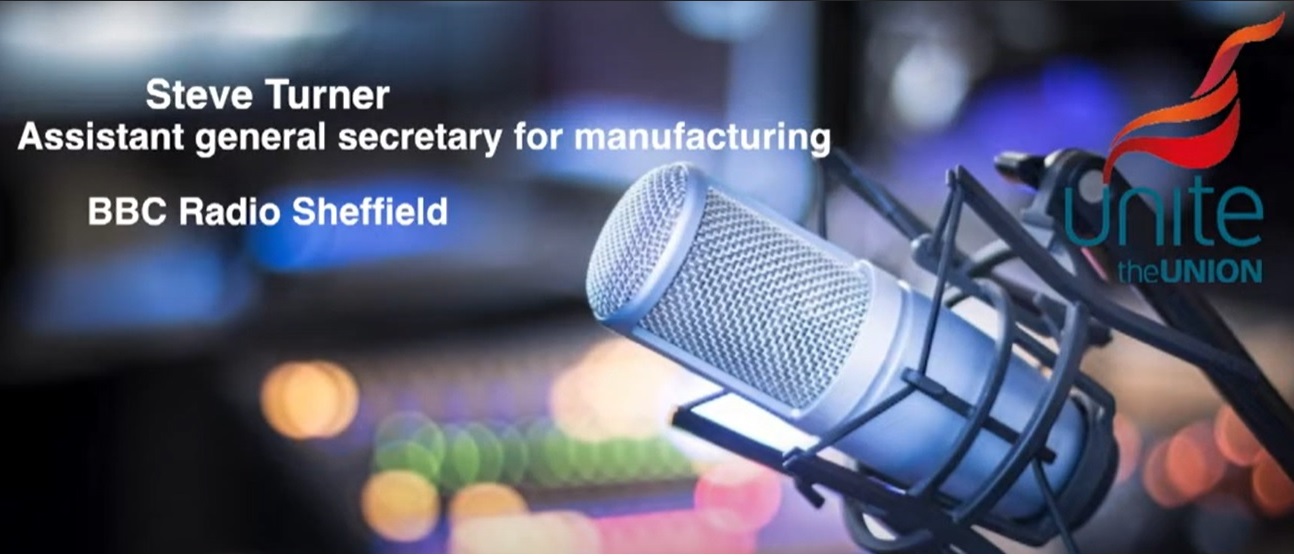A workforce dehumanised
When the SSI steel works in Redcar closed in October the 2,200 skilled workers that lost their jobs knew things were going to be tough.
Redcar, Middlesborough and all of the surrounding towns were not exactly flush with job opportunities – or wages – that matched the skills set and vast experience of the now jobless workforce.
Tough was what they expected – but they had little idea of the demoralising, depressing and dehumanising experiences they were about to encounter – at the hands of those who are supposed to be helping them.
And yet already we are hearing stories of the sheer cliff faces workers are having to climb – just to survive.
Reports in the Daily Mirror (January 20) say that axed steelworkers have already been threatened with benefit sanctions, just two weeks after they lost their jobs.
Horrendous
Yesterday (January 19) Anna Turley, Labour MP for Redcar told MPs about the workers’ “horrendous” treatment at the hands of Jobcentre staff in the area.
Turley claimed the workers, who have decades of experience, have not been given a 13-week grace period they were promised to apply for jobs needing similar skills.
Instead they have been told to apply for work in shops and bars just two weeks into their claims as Britain’s steel industry faces collapse.
Speaking in a Commons debate after hearing the news that Tata had axed 1,050 more steel jobs including in Port Talbot, South Wales, Turley said it was the latest in a string of “widespread problems with JobCentre Plus.”
She reported, “A number of constituents have contacted me to raise the dehumanising treatment they feel they have received in Jobcentres.
“Many of these workers have never been out of work and the experience of being on the dole for many of them, like so many of my constituency, is horrendous.
“Sanctions should not be used as a mechanism to force claimants to apply for jobs which are not relevant in this instance. They should be a last resort, she added.”
It seems that Anna Turley’s report can be borne out by the experiences of Unite members.
Too early
One man was told he had to leave the Jobcentre premises as he had turned up for his appointment â€too early’. He was 30 minutes ahead of time – keen to ensure he kept his appointment – worried, as he was aware of what happens to those who might be late.
Another, a skilled mechanical fitter was made to go to an interview as a motor mechanic or risk being sanctioned. Unfortunately the fact that the two jobs have little in common and that the fitter had no experience or relevant knowledge of car engines made no difference to the Jobcentre.
And then there’s the older worker who wants to go into teaching; who is prepared for the necessary long and challenging training and starting at the very bottom of a new low-paid career.
He wants to volunteer at a school to gain invaluable experience, but is worried the Jobcentre might sanction him for taking this time and in their eyes â€not actively seeking work’ – although that is exactly what he is doing.
At best this is ridiculous – at worst it is dehumanising. Unite convenor Kevin Cook who with over 39 years’ experience at the steel works says this apparent lack of respect and understanding of members’ skills – and hopes for some kind of future – are leaving families distraught and exhausted.
“It [the closure] was a real shock, a nasty surprise, coming as it did before Christmas,” says Cook. “I’m 55 and at my age it’s not a good time to start a new career.”
The government is only too keen to tell everyone that it has given ÂŁ80m in a support package to help those affected by the closure.
According to the government’s own figures (see below) 2,200 jobs were lost from SSI with 954 jobs going from the supply chain.
Â
There appears to be some encouraging results on jobs and training – with “4,000 training courses agreed for 2,120 people’ and “166 people have been employed as a direct result of the first Jobsfair in October 2015. 884 people attended the second Jobs and Skills Fair in November, where 700 immediate jobs were offered.”
Finally on apprentices, “51 former SSI apprentices are all in education, training or placed with employers.”
Reality
But the reality is not that straightforward. “A course could last one or two afternoons,” explains Cook. “It’s entirely possible that one person could do one or more of these short courses – which explains the 4,000 courses number,” he adds.
Courses are being contracted or expanded – making them more intense. “I did a course over two weeks which was originally 10 weeks. Or you could find yourself doing a 30-hour course spread over 10 weeks. It’s because you could be sanctioned if you spend more than 15 hours a week on courses.”
So what about these “700 immediate jobs” “offered” at the October jobs fair? Needless to say they didn’t exactly match the skills set of our members. Cook does not recall if there were as many as 700 “jobs” but says, “I remember there was about 600 jobs with a firm doing some kind of delivery work on zero hours contracts. But it wasn’t in this area – it was somewhere like Nottinghamshire and the workers would be bused down from here.”
It is not known how many skilled steel workers availed themselves of this offer. Other more traditional employers attended including the armed forces and the ambulance service.
Extensive re-training
“To be a regular paramedic you would need extensive re-training. There were other driving jobs – but they were zero hours contracts and low paid,” reports Cook.
And what about the 51 apprentices? “All the apprentices will finish their apprenticeship – the local community has joined together and made that happen. So at least we have that,” he says.
“Yes there are some jobs out there,” he says. “But the Jobcentre wants everything – someone highly qualified, highly experienced – all for £18,000 to £25,000 a year – which is between £7,000 to £10,000 less than we were earning before.
“And there is a lot of competition. We’re not just talking about jobs lost in Redcar or Middlesborough or the surrounding area. Boulby Mine has had to make cut backs – that’s 700 more people looking for work. About 4,000 jobs have gone from this area – and now the government is talking about closing the HMRC office – more workers looking for jobs.
“Redcar was just starting to get back to where it used to be but now it’s going downhill again.”
And for many ex-SSI workers they just can’t see how things are going to get any better.
For Unite, government action is critical – and the lessons of Redcar must be learned for the future of UK steel and all of our steelworkers and their communities now at risk.
“UK steelworkers make some of the best steel in the world which plays a part in our everyday lives,” said Unite national officer, Harish Patel.
“Steel is vital to the UK’s regional and national economies and our future as a manufacturing nation. Without steel any hope of rebalancing the economy and building prosperous communities will turn to dust.”
For more see the Unite film â€Save our Steel’ and sign The Mirror’s petition at www.mirror.co.uk/steelpetition
TASK FORCE TALLY
The government Task Force set up to help SSI Redcar steelworkers back into work claims it’s helped almost 700 people back into work or training. Headline figures are:
Job losses: 2,200 SSI steelworkers were made redundant when the plant closed in October 2015
954 job losses in the supply chain, 26 companies have announced. But 92 SSI staff have been retained by the Official Receiver to work on site safety.
Redundancy payments and benefits: 2,027Â of the former SSI workforce (98.1 per cent) have made online redundancy pay applications; 695 former SSI and supply chain workers are no longer claiming benefits.
Training and support: 5,200Â calls have been made to the Jobcentre Plus helpline. 4,000 training courses have been agreed for 2,120 people; 2,969Â people have received advice and help from the Support Hub of the Task Force.
Jobs and skills fairs: 166 people have been employed as a direct result of the first Jobsfair in October 2015. 884 people attended the second Jobs and Skills Fair in November, where 700 immediate jobs were offered.
Apprentices: 51 former SSI apprentices are all in education, training or placed with employers.
Government data from itv.com article
 Like
Like Follow
Follow


